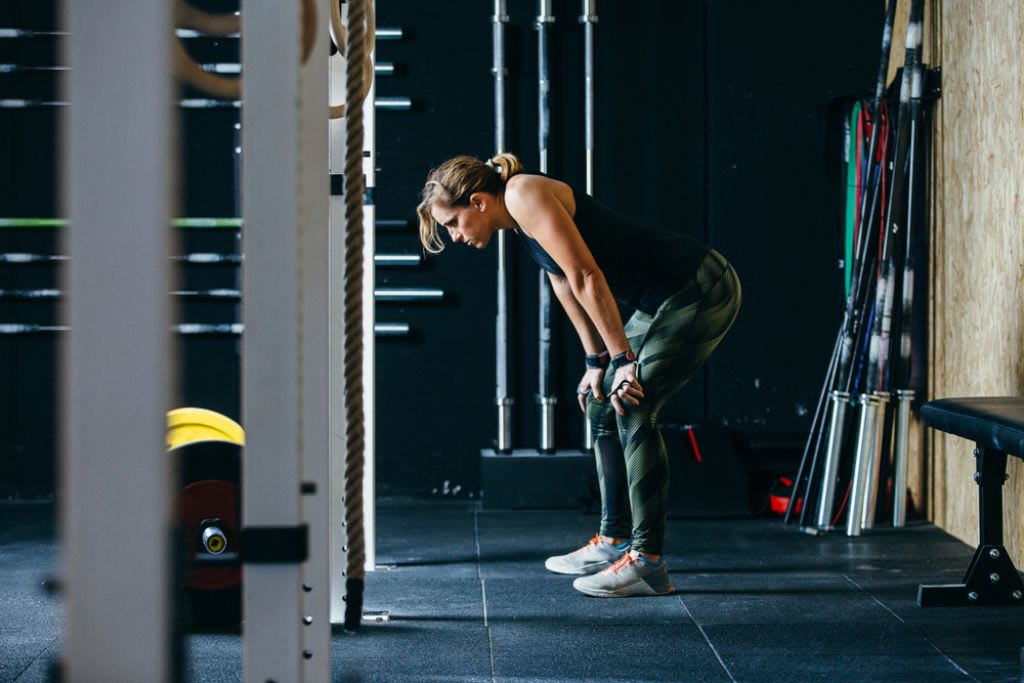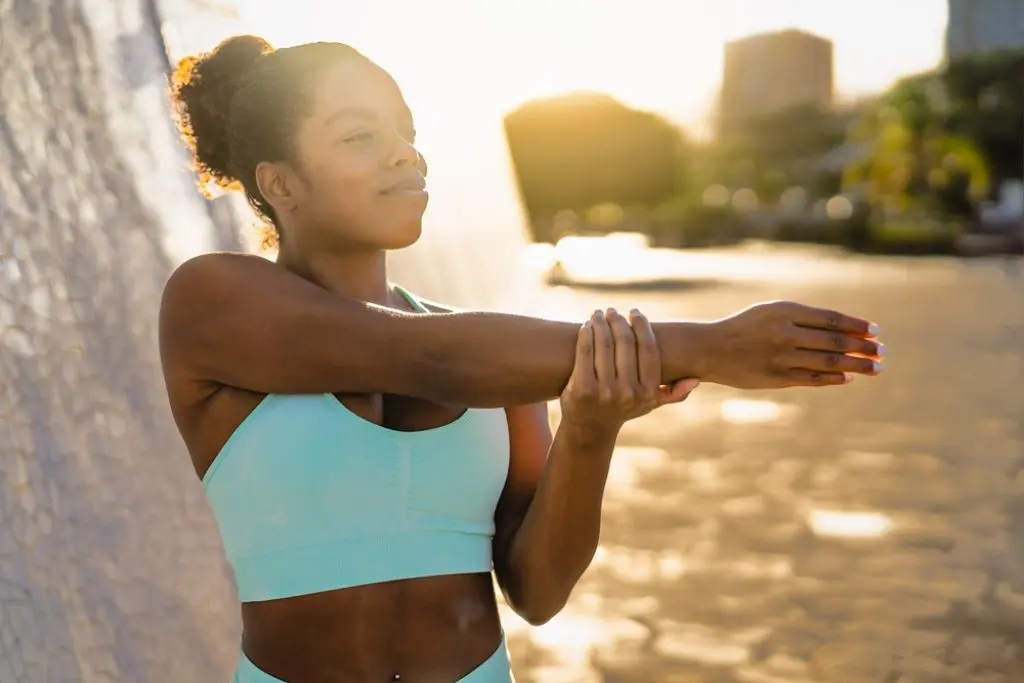Why Do I Feel Sick After Working Out?

May 4, 2023

If you’re someone who works out regularly, chances are you’ve experienced that awful feeling at some point during or after a training session when you suddenly think - oh no, am I going to be sick?
You’re not alone. According to research from 2013, gastrointestinal symptoms are an issue for at least 20% of athletes, with some studies putting that number closer to 70%. For some, these symptoms are related to your upper gastrointestinal tract, such as burping, reflux, heartburn, nausea and vomiting. At other times, it might be in relation to your lower intestinal tract - think cramps, diarrhoea or gas.
Many different factors can play a role, such as your age, sex, training history and level of fitness, but the most common causes of nausea during or after a workout are heatstroke, dehydration, training intensity, meal timing, and reduced blood flow to the digestive tract and abdominal organs.
Because your body naturally distributes blood to your muscles (and away from your digestive organs) during exercise to transport oxygen and nutrients where they are needed most, nausea or digestive discomfort is common during or after exercise. The good news is there are definitely a few tweaks you can make to feel more comfortable and avoid that icky feeling!
If you try making some changes to your exercise routine and are still asking yourself why you feel sick after working out, it’s best to see your healthcare provider.
Eat wisely
What and when you eat before a workout can make a big impact on how you feel while exercising. Food takes time to digest and move from your stomach to your intestinal tract, so if you eat too close to your workout, hello nausea. For others, exercising on an empty stomach is a recipe for nausea (especially if you’re feeling lightheaded or low on energy), and allowing time for a snack or scheduling workouts for a later time can be a simple solution.
Wondering when the best time is to work out? Find out here!
2014 research has highlighted the importance of nutrition when it comes to reducing the risk of gastrointestinal discomfort during exercise (alongside impaired performance and recovery!). One of the main causes of nausea is the fact that blood flow to your digestive system is reduced when you exercise as your body increases blood flow to your muscles. This makes meal timing a key consideration if you do tend to feel queasy or uncomfortable.
To ensure you don’t have food sitting in your stomach during your workout, it pays to eat at least 90 minutes before you exercise, as research shows it takes on average about two hours for your stomach to empty. If you’re having a pre-workout snack, try to avoid foods high in protein or fat as they can take longer to digest than carbohydrates. Popular and easy to digest choices include fruit, a piece of toast, granola or crackers.
Dairy products can also cause stomach sensitivities for some people, so it can help to keep a journal of what and when you’ve eaten and how you felt during or after your workout to find what works best for you.

A sip here, a sip there
Knowing how much water to drink before, during and after your workouts can be a tough one as it’s really a balance of not too much, but not too little.
Take regular small sips of water in your rest periods if it feels ok to do so, and avoid chugging big volumes of water (not only during your workout, but before and after, too!). Dehydration is another common culprit if you’re experiencing dizziness and nausea, so make sure you drink enough water throughout each day to feel your best when you exercise.
Ease in and out of it
We know there are times when you’re busy and just want to get your workout done as quickly as possible, and this can mean it’s tempting to skip your warm-up or cool-down. Even if you can only spare three to five minutes to warm up, make it a priority.
Not only does warming up prime your muscles for the movement to come, but it can also help reduce nausea during or after your workouts by gradually increasing blood flow away from your abdominal organs and towards your muscles, while also giving your digestive system time to adjust.
Launching straight into a high-intensity workout can be very jarring for your organs and might make you feel ill, as can ending a workout abruptly with no cool-down period, so try bookending your workout with a few minutes of gentle movement and see if that helps.
Is it getting hot in here?
Getting heat stroke from strenuous activity is a very real risk, as hot temperatures can leave you sweaty, lightheaded, dehydrated and lower your blood pressure.
When it’s hot outside, the CDC recommends limiting your outdoor activity and scheduling workouts earlier or later in the day to avoid the midday heat, opting for an air-conditioned space, or perhaps a shaded outdoor area. Wearing moisture-wicking fabrics and sipping water can also make a difference.

Know your limits
As much as we love to see you Sweat, smash your goals and hit those PBs, there’s a fine line between challenging yourself and overexerting yourself so much that you’re wondering how quickly you could run to the bathroom if you needed to.
Research has shown the group most strongly affected by gastrointestinal symptoms during exercise are those who participate in strenuous, long-lasting types of movement, so it may help to reduce the intensity or duration of your workouts.
Another study found that scores for nausea after recently eating were greater during high-intensity exercise than during low-intensity exercise, and during high-intensity exercise, scores were greater immediately after eating than without eating. The connections between meal timing, workout intensity and nausea are definitely something to be mindful of!
If you want to increase the intensity of your workouts to challenge your fitness, do it gradually rather than going from zero to 100.
Tweak your training style to suit you
Speaking of intensity, certain training styles or exercises can also lend themselves to higher levels of intensity or put more pressure on your abdominal organs.
When you’re breathing hard, the movement of your diaphragm can affect your organs, as can heavy lifting, core exercises, plyometric (jumping) workouts, or movements where your posture is hunched. If you notice yourself feeling sick every single time you perform a certain exercise, it could be a good time to try a substitution.
Dress for success
No matter how good it looks, making sure your activewear is the right cut and fit is a non-negotiable, and luckily this one isn’t too hard to figure out.
If you realise your stomach cramps are right on the line of your waistband or you feel restricted because your top or sports bra is too tight, make it your top priority to get some proper fitting workout clothes.
Whether you like your activewear baggy or tight, long or short, wear whatever makes you feel comfortable and confident to work out in.
Are waves of nausea getting in the way of you enjoying your workouts, or does it take a long period of time until you feel like yourself again afterwards?
While workout-related nausea is very common, that doesn’t make it any less unpleasant, and we definitely recommend making some adjustments to your routine to find what makes your body happy. Working out should feel good after all.
Making changes but find the nausea just ain’t budging? A check-up and advice from your healthcare provider is the best way to go!

A more empowered you starts with Sweat, and our editorial team is here to bring you the latest fitness tips, trainer recommendations, wellbeing news, nutritional advice, nourishing recipes and free workouts.
* Disclaimer: This blog post is not intended to replace the advice of a medical professional. The above information should not be used to diagnose, treat, or prevent any disease or medical condition. Please consult your doctor before making any changes to your diet, sleep methods, daily activity, or fitness routine. Sweat assumes no responsibility for any personal injury or damage sustained by any recommendations, opinions, or advice given in this article.
Fitness